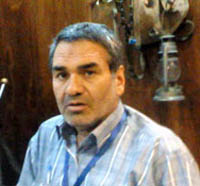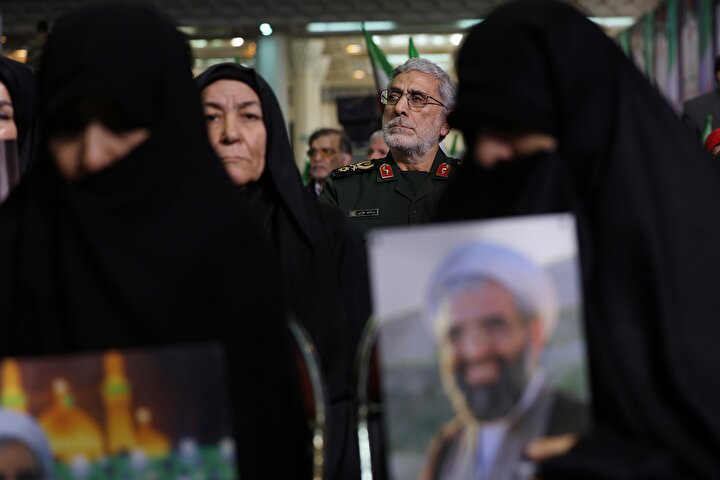The Enemy Circle that Broke

When you sit beside him you feel as if his breath stops for a moment there
in his chest and then gets out slowly and with difficulty grinding his throat.
Seeing all this makes us feel we are also falling short of breath.
Asadollah Mohammadi is son of Ali Akbar. He was born in 1964 in Kashan city. He left school during the Iran-Iraq war because he wanted to go to the war as he would consider it as a duty. But being away from education lasted only for a few years and after the end of war, he attempted to be active in the earthwork of science. He got his bachelor degree in Chemistry Science from Esfahan University.
He was only 18 years old when he went to the war to defend his country and he got prepared to fight against all the difficulties; he encountered captivity, injury and martyrdom; that is why when he was targeted by Iraq’s chemical warfare from a distance of 200 meters in 1986 in Shalamcheh war zone, facing with this trouble was something acceptable for him and as he himself says: "It was our belief that would keep us in the war.”
Mohammadi in an exclusive interview with the reporter of Chemical Weapons Victims Information Base has more words to say:
It was 1982 and the educational year exams had been ended. I did not wait for my results. I was 18 years old that I was dispatched to South of Iran by the local Basij center. The military operation ‘Ramadan’ had just been started and many forces needed to be there.
He took part in the military operations Ramadan, Muharram, Valfajr 8, Karbala 3, Karbala 4, Karbala 5. Anyways he was in the battlefields of Iran-Iraq war for 35 months. Staying in the war would strengthen the belief of this victim of chemical warfare more and more gradually in a way that despite of many physical health problems resulted from his injury, still he has a strong belief and a high moral. These problems have not hardened life for him.
He continues: We inhaled the smell of mustard gas and after that we wore our protective masks. But it was too late and we observed the symptoms of chemical weapons after 30 hours passing from that event; I faced with irritation in eyes, runny nose, coughs, vomiting, nausea and weakness. We were taken back to the hospital. It was in winter and the weather was so cold. They asked us to take a cold shower in that cold weather in order to prevent appearance of blisters on our skins. Due to intensive coldness, many of the war veterans were not able to take a shower and the blisters appeared all over their bodies. I was hospitalized for 40 days in order to receive treatment. I lost my eyesight for two weeks completely. But I was able to see once again after this period of time gradually. Of course the wound of eyes cornea has not left me yet and I have been suffering the asthma during the past years. I have to trip to Germany in order to receive treatment. Each time that I travel to Germany, I have to stay there for 30 to 40 days and to be under health cares.
Mohammadi ends his words by expressing a memory regarding the Iran-Iraq war era: It was the military operation ‘Muharram’. The enemy had surrounded us and we had faced with the shortage of munitions and foods. We had got prepared in order to give up fighting, suddenly an Iraqi tank came towards us. The Iranian war veterans started fighting against the tank by shooting at the tank. The Iraqi tanks had come to the same line and they were coming towards us. One of the war veterans targeted the Iraqi tank by R.P.G and all the Iraqis who were inside the tank came out of the tank. All of those Iraqis who were behind this tank got out from their tanks and they escaped and not only we were not captured, but also we were able to capture several tanks as spoils.
The End




